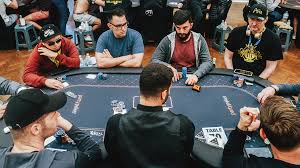When playing poker, whether it’s Texas Holdem or other poker variations, beginners can often be overwhelmed by the large number of starting hands available in poker. In Texas Holdem, there are 169 different starting combinations, while in Omaha there are only aces and kings. In five card stud, players are offered four cards, plus an additional fifth card choice in the seven card stud. With all of these options, beginners must be able to quickly evaluate which hand they should play and which hand they should fold. But there’s more to starting hand strategy than this. Here are some pointers on how to play starting hands well.

· Not all pairs are created equal. Before you throw yourpoker chips into the pot, you need to consider how the cards might flow. If you have a pair of aces, but there are several other aces in the deck, you may be better off throwing your aces away and receiving more cash. A pair of kings is a good hand, but you can still be covered for a possibleces. Many losing players will throw away both their kings and their aces and are thus “pot committed.” With a better hand available, you can save yourself more chips if you are behind and save the blinds.
· Hands with three of a kind are not as strong as you would think. Three of a kind offers up a very strong hand, but it also has a higher likelihood of other players getting a stronger hand than you. If you are playing high low split games, you are better off getting two high cards and three low cards, or two low cards and three high cards. If you are playing in high / low, or eight card games, you have a better chance of getting a better hand than your opponents, so stay away from four card teasers and five card studs. You also want to avoid borrowed cards in this situation, as you may be creating a too big of a risk for yourself.
· If you are holding face cards, after seeing the flop, you should bet or raise to push out any drawing hands that may be in play. While you are hoping to take the pot immediately, you are hoping that your hand is good enough to win the race to the final card. While you are chasing the draw, players are trying to do the same thing. Pay close attention to your position at the table, and you should be fine.
· Betting is mandatory in heads up poker. Many players forget this fact, and the result is often that the small blind and big blind may call your bet, even though it is not reasonably likely. Consider this when you are either getting raised or defending your blind.
· When you are in the small blind, and there are multiple callers, you should cautious about calling because you are obviously behind. It is normal to want to take the lead in the betting, but you want to make sure that you are not dominated. Three or four players are not an especially dangerous concentration, but if you notice one player constantly raising in a super-tight pattern, chances are they are doing it with a good hand.
· In the big blind, you should also super-tight when you know you are behind. Even if you have a strong hand, chances are someone will raise and you will not get any action. Heads up poker is about creating a certain image, and while you are trying to act opposite your opponents, you cannot afford to appear weak when behind.
· One of the most important tools in heads up poker is the ability to instantly decide to either bet or check, it is not always necessarily a helpful tool. Checking is a passive play, unless for a loose flop, but betting is a means of exchange. You will not usually want to bet unless you have a very good hand, and only then. If you are raised, you can always get out, but if you if you like your hand, you like to play a little longer with it.
· Don’t call to try and catch a draw. As well as it can hurt your ability to judge what the other guy has, it also opens you up to possible bluffs.
· Cliffs generally speaking, if you have odds then you should bet, it’s as simple as that. If you are on a draw, you want to take the risk, although you want to be aware of your opponent’s aggression, if it’s worth it.
· Listen to your own words, it’s easy to talk myself out of pots, but if I am going to go all in against a flush draw, a straight draw, a three out of three straight, I am 100% willing to call. You don’t need to answer my questions, just listen to what you say, and you will be fine.